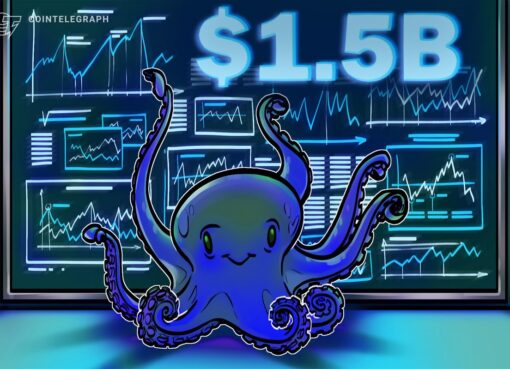Ethereum bulls have hit back against claims the network has become prone to censorship post-Merge, with one arguing that “not even a single” transaction has been censored on the network.
In a 19-part thread to his 29,100 followers on Oct. 17, Cyber Capital founder and CIO Justin Bons argued that contrary to “what some Bitcoiners are falsely claiming,” not a single transaction on Ethereum has been stopped as a result of Office of Foreign Assets Control (OFAC) sanctions.
Bons was referring to recent reports suggesting Ethereum has become too reliant on OFAC-compliant Miner Extractable Value (MEV)-Boost relays since the Merge.
Last week, it was reported that more than 51% of Ethereum blocks are now complying with the U.S. sanctions after transitioning to proof-of-stake (PoS).
The crypto-fund manager argued that despite the increasing presence of OFAC-compliant MEV-Boost relays, it only becomes censorship when producers refuse to build on non-compliant blocks, though that would result in forking and splitting of the chain, explaining:
“Even with 50% OFAC compliance, a non-compliant ETH TX will be confirmed within 30 sec! Compared to BTC’s more variable 10min!”
Bons further argued it only takes one contributing validator to include what may be an OFAC-sanctioned transaction in the canonical chain.
“This means that a very small minority of validators/miners can counter such censorship over both ETH & BTC! Easily less than 1% can prevent censorship,” he explained.
Having attributed most of this backlash to “Bitcoiners,” Bons also argued that Ethereum with its new PoS consensus mechanism is “less vulnerable” and “far more secure” than Bitcoin under proof-of-work (PoW) because institutional players are not economically incentivized to try split the chain.
Related: Ethereum may now be more vulnerable to censorship — Blockchain analyst
Ethereum developers have also working to improve Ethereum’s censorship resistance too — with Ethereum developer Terence Tsao of Prysmatic Labs on Oct. 17 announcing that he and fellow developer Marius van der Wijden had begun building a solution to address the issue:
Together with the legend @vdWijden, we have started prototyping features to enable the proposer to select between a local block and a builder block with the highest fee.
The first step for censorship resistance️https://t.co/HyzUBZuB6V https://t.co/GGuAIegW5H— terence.eth (@terencechain) October 17, 2022
Ethereum co-founder Vitalik Buterin recently proposed a Partial Block Auction solution, where a block builder only has the right to decide some of the contents of the block.
Ethereum research and development organization Flashbots is also looking to soon roll out its fully decentralized and EVM-compatible block builder — Single Unifying Auctions for Value Expression (SUAVE) – in order to combat censorship issues.
Ethereum protocol upgrades in order of importance over the next 6-12 months:
– Beacon Chain withdrawals
– PBS/crLists/related censorship-resistance upgrades
– Proto-danksharding (EIP-4844)Just my humble opinion – censorship resistance is more important than scaling right now
— sassal.eth ️ (@sassal0x) October 15, 2022
On Aug. 8, the United States Treasury Department added more than 40 cryptocurrency addresses allegedly connected to controversial mixer Tornado Cash to the Specially Designated Nationals list of OFAC, effectively barring U.S. residents from using the mixing service.




